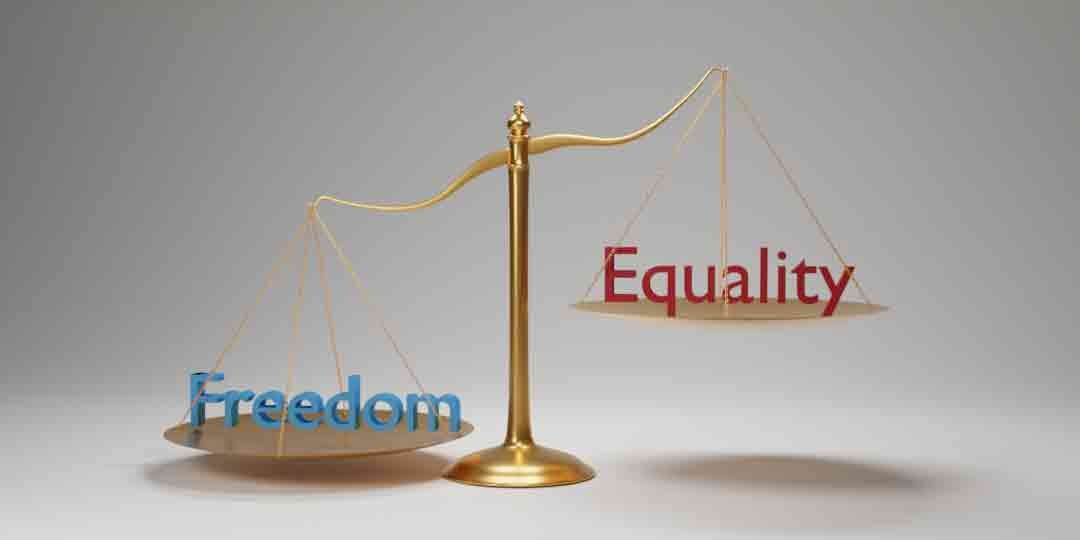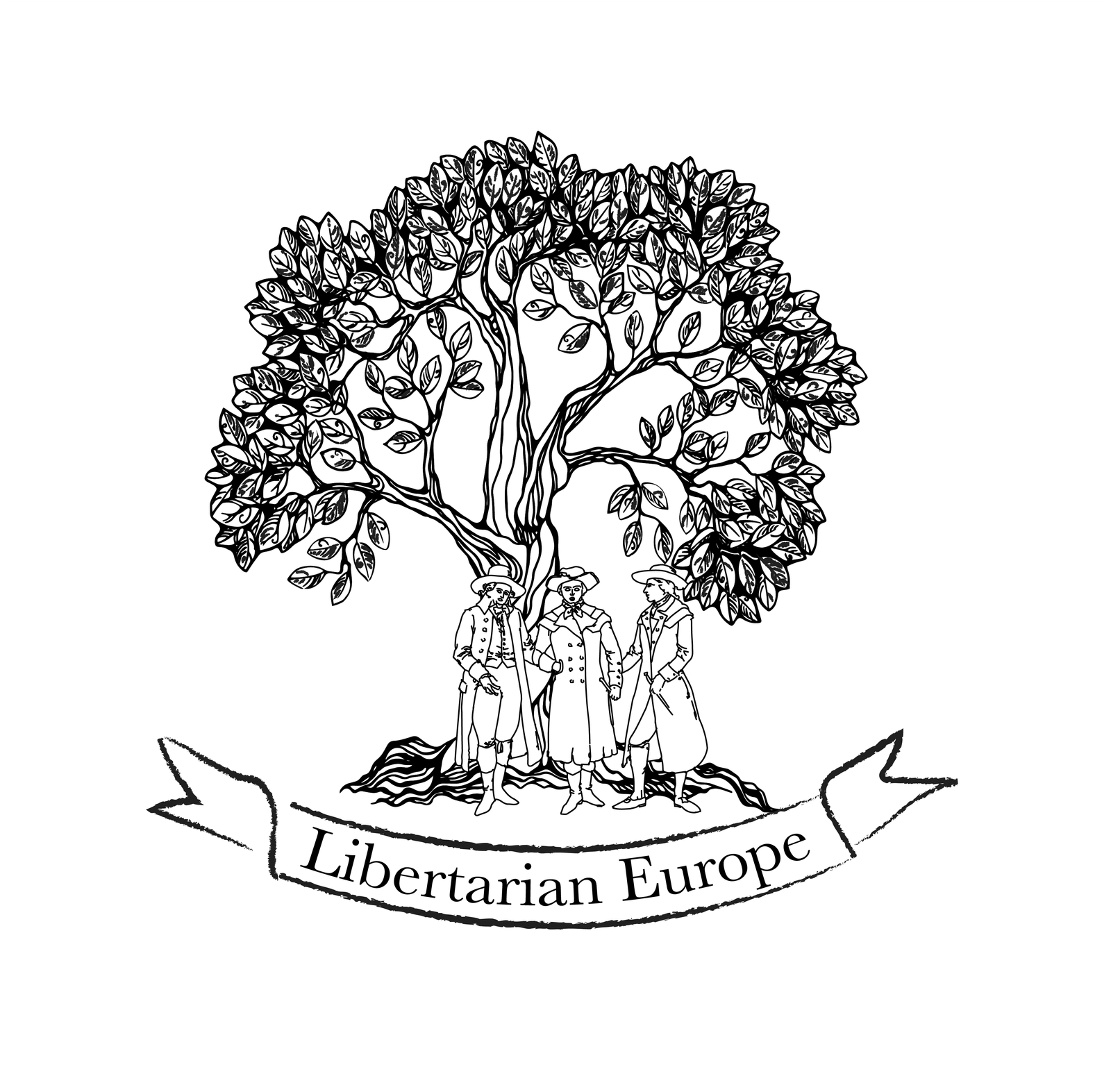
Freedom or equality: Why we can’t have both
Even more often we hear slogans which extol freedom and equality, as old socialist purposes. Almost every European left-wing party has used these ideals in its political narrative, uniting the main images that the socialist world has wanted to show about itself, in the second-half of the 20th century. It is hilarious that the representatives of the totalitarian regime, which had wiped out half of Europe with its coercive power, destroying all sorts of individual freedoms, would talk about freedom.
Hiding behind the idea of true socialism—something a lot different from what we have seen every time it has been tried—, they have argued that the real goal of socialism was precisely an equal and free world. We could even be charmed by this amazing future that waits for us, if only it could be possible. But, unfortunately, it’s not.
Freedom and equality have always been a kind of trade-off. In economy, we can speak of a trade-off when we are in a situation in which the functional relationship between two opportunities is altered inversely, where the growth of one leads the other to decrease of the other. In other words, a trade-off forces us to make a choice.
This is the relationship between freedom and equality: The maximum level of freedom corresponds to a minimum level of equality, and vice versa. The major author who has been able to explain this was Robert Nozick, who scientifically has demonstrated what was written earlier.
Nozick was an American professor, he taught at Harvard, and, in 1974, he wrote “Anarchy, State and Utopia”. He wanted to respond to what his colleague John Rawls had written two years before. Rawls wrote what has been considered a new social-democratic manifesto, when left-wing parties began to move away from Marxism and when they needed a new intellectual narrative.
Responding to Rawls, Nozick gave us a scientific explanation about the impossibility to get both freedom and equality. The American author wanted to formulate a new kind of classical liberalism. He began from John Locke’s idea of the State of Nature, in which individual rights have to be guaranteed, and they chose to create a Minimum State to solve problems which may happen.
The minimal state treats us as inviolate individuals, who may not be used in certain ways by others as means or tools or instruments or resources; it treats us as persons having individual rights with the dignity this constitutes. Treating us with respect by respecting our rights, it allows us, individually or with whom we choose, to choose our life and to realize our ends and our conception of ourselves, insofar as we can, aided by the voluntary cooperation of other individuals possessing the same dignity. How dare any state or group of individuals do more. Or less.
What actually he has been able to realize is a scientific pattern to demonstrate the reasons why we can’t have a situation with absolute liberty and equality. According to Nozick, if we reallocate the wealth perfectly in a determined place, in a determined period (D1), we could get a situation of perfect equality. Then we could choose to allow a free life for every person or not.
To explain the first case, Nozick used the example of the basketball star, Wilt Chamberlain (nowadays we’d think of Lebron James, or Messi on football), telling us people would have paid to watch Chamberlain’s games and the equality earlier (D1) would be over (D2).
Nozick, in other words, accepted that people are not equals, everyone has a specific talent, and everyone is own of his skills. For this reason, in the switch from D1 to D2, we would have a different kind of general wealth. Some people would have earned money, someone else would have lost money, due to different elements.
Then, to preserve D1 we should force people to get it. How could it be possible? There are two ways: preventing the people of paying to watch Chamberlain or theorising or applying periodic cash withdrawals from Chamberlain to restore D1.
Both two possibilities to preserve equality are freedom-killing, and they interfere with individual choices. Moreover, Nozick redefined the concept of justice along the principle that we have justice only when it has created by free people choices:
“If D1 was a just distribution, and people voluntarily moved from it to D2, transferring parts of their shares they were given under D1 (what was it for if not to do something with?), isn’t D2 also just? If the people were entitled to dispose of the resources to which they were entitled (under D1), didn’t this include their being entitled to give it to, or exchange it with, Wilt Chamberlain? Can anyone else complain on grounds of justice? Each other person already has his legitimate share under D1. Under D1, there is nothing that anyone has that anyone else has a claim of justice against. After someone transfers something to Wilt Chamberlain, third parties still have their legitimate shares; their shares are not changed. By what process could such a transfer among two persons give rise to a legitimate claim of distributive justice on a portion of what was transferred, by a third party who had no claim of justice on any holding of the others before the transfer?”
This concept, brilliantly explained by Nozick, was not properly new. David Hume had already theorised that even if someone could make a situation of perfect equality, only with a powerful and liberty-destroying government action, it could be preserved.
To sustain how it has been written, I can quote what Karl Popper and Milton Friedman have said, too. Popper thought that freedom was more important than equality, but, above all, seeking equality was a danger for freedom:
Freedom is more important than equality; that the attempt to realize equality endangers freedom; and that, if freedom is lost, there will not even be equality among the unfree.
Friedman, instead, assumed that equality can be possible only in poverty, and if people are equals it means they are not free.
Everyone can think about what has been written. In history, none government equality-based has been able to exist without destroying every kind of freedom.
What appears a lot worrying is about our collective mind nowadays: Even more people request equality, even more they are government addicted, not thinking how this process could affect our lives.

